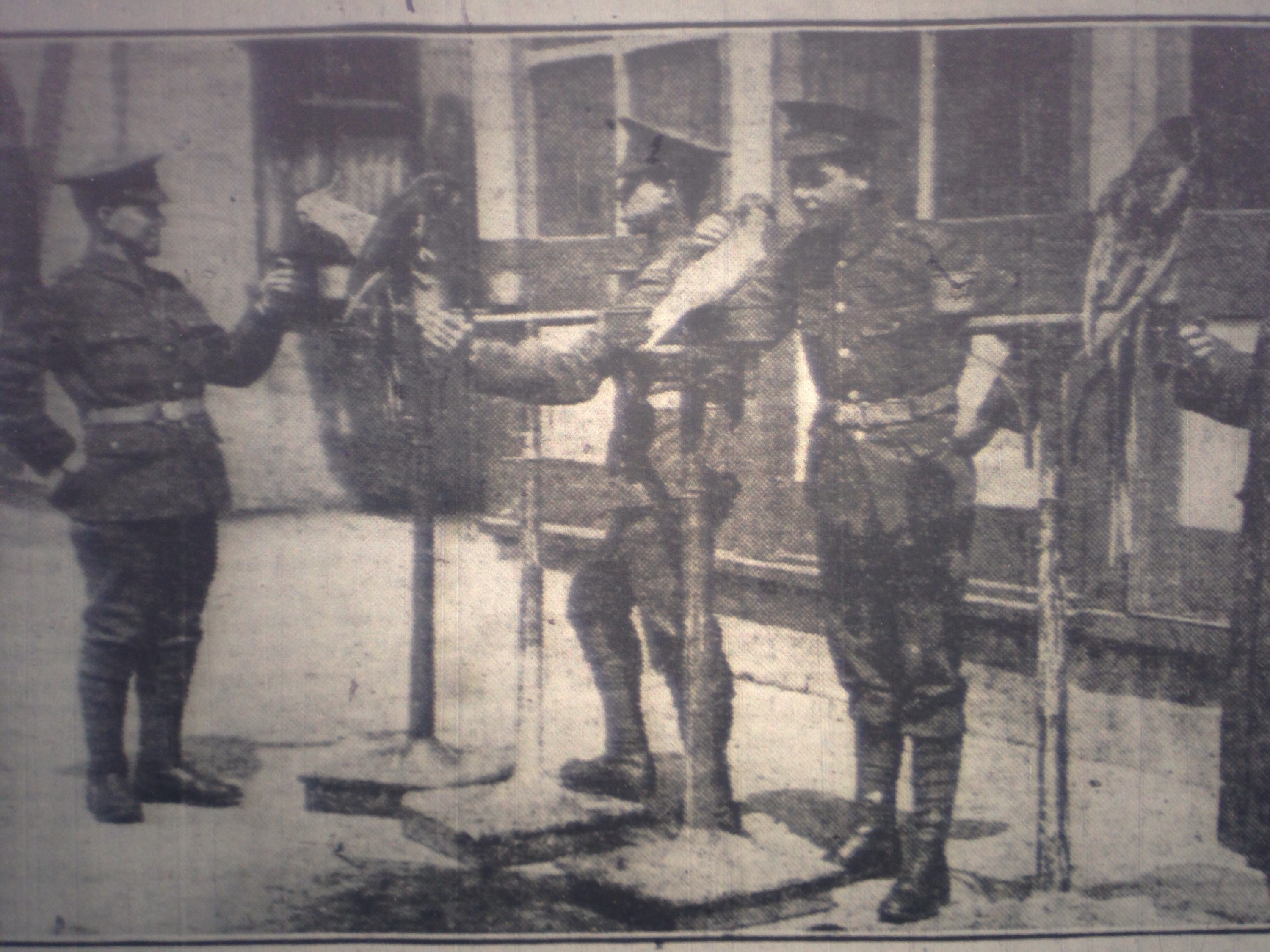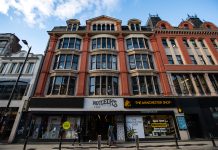Lloyd George is made minister of munitions, a new department set up by the Asquith government charged with organising the supply of munitions during the war. Meanwhile two women were killed in Southend as a Zepplin raid dropped fifty bombs on the town.
Lord Kitchener put out a new recruitment call for 300,000 men with the age limit now increased to forty and a large recruiting rally was held in Piccadilly that weekend.So far 86,998 Manchester men had joined up and a further 147 joined the call that day.
The weather was unseasonable hot in Manchester that week. It was Whitsuntide week and the war did not disrupt the usual Thursday practice of children’s trips into the country although rail restrictions meant that youngsters left the city on canal boats, tramcars and lorries .
The usual whit processions took place but without the usual bands replaced this year by boys brigade players.
There was a strike by cotton workers at the Forge Mill in Oldham, spinners walking out and forcing its closure demanding wage increases of ten per cent and claiming that the employers had broken a five year truce by locking them out.The dispute seemed set to spread to eight other mills in the region.
There was a major fire at a cotton warehouse at Knott Mill owned by the Ship Canal Co, the fire brigade using water from the canal to douse the flames.Arson was suspected when there was another blaze at a warehouse off Liverpool road the following day.
The Albert Hall choir played an open air concert at the Cambrian Street recreation ground in Ancoats. It was the first concert of the Park Committees scheme for taking music into the slums.The Evening News said that there was a large and very appreciative audience.







